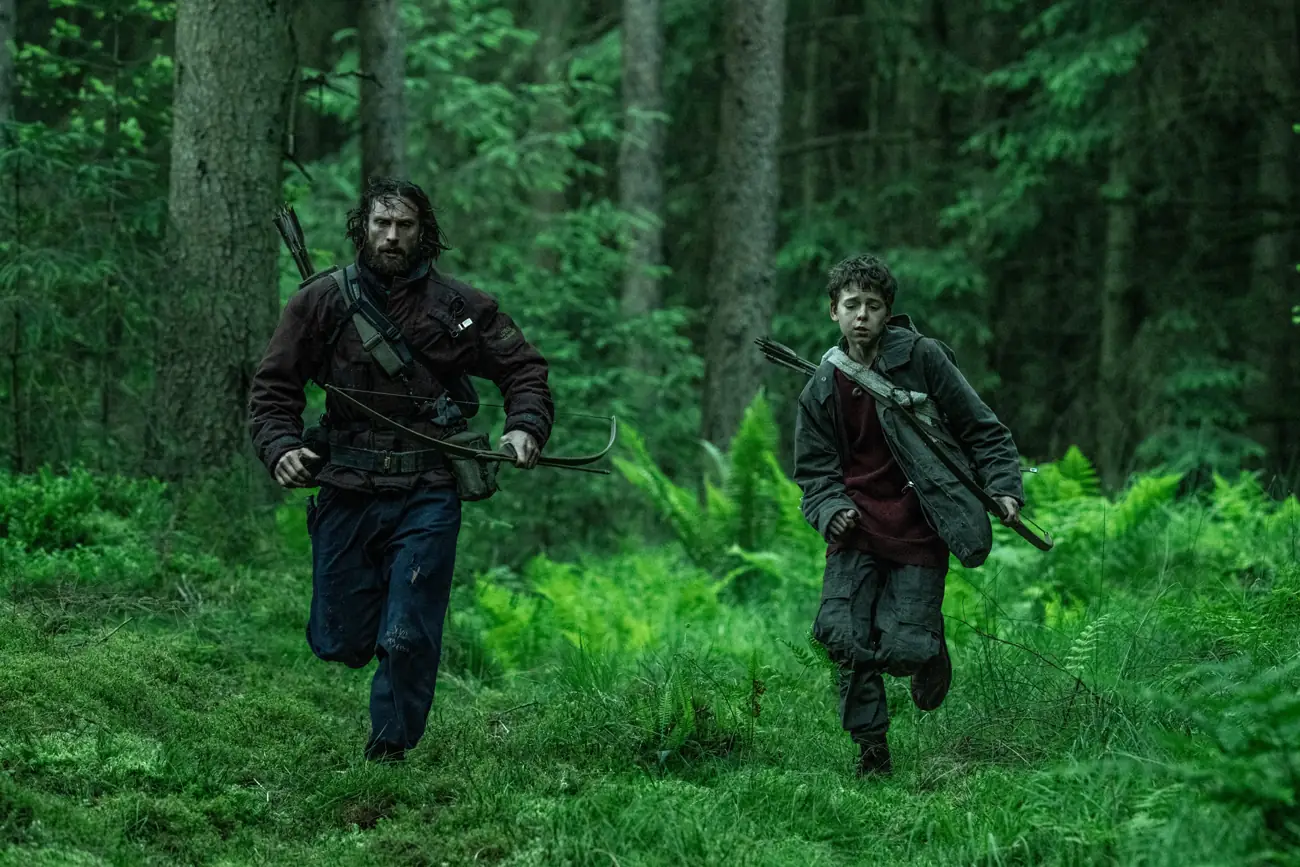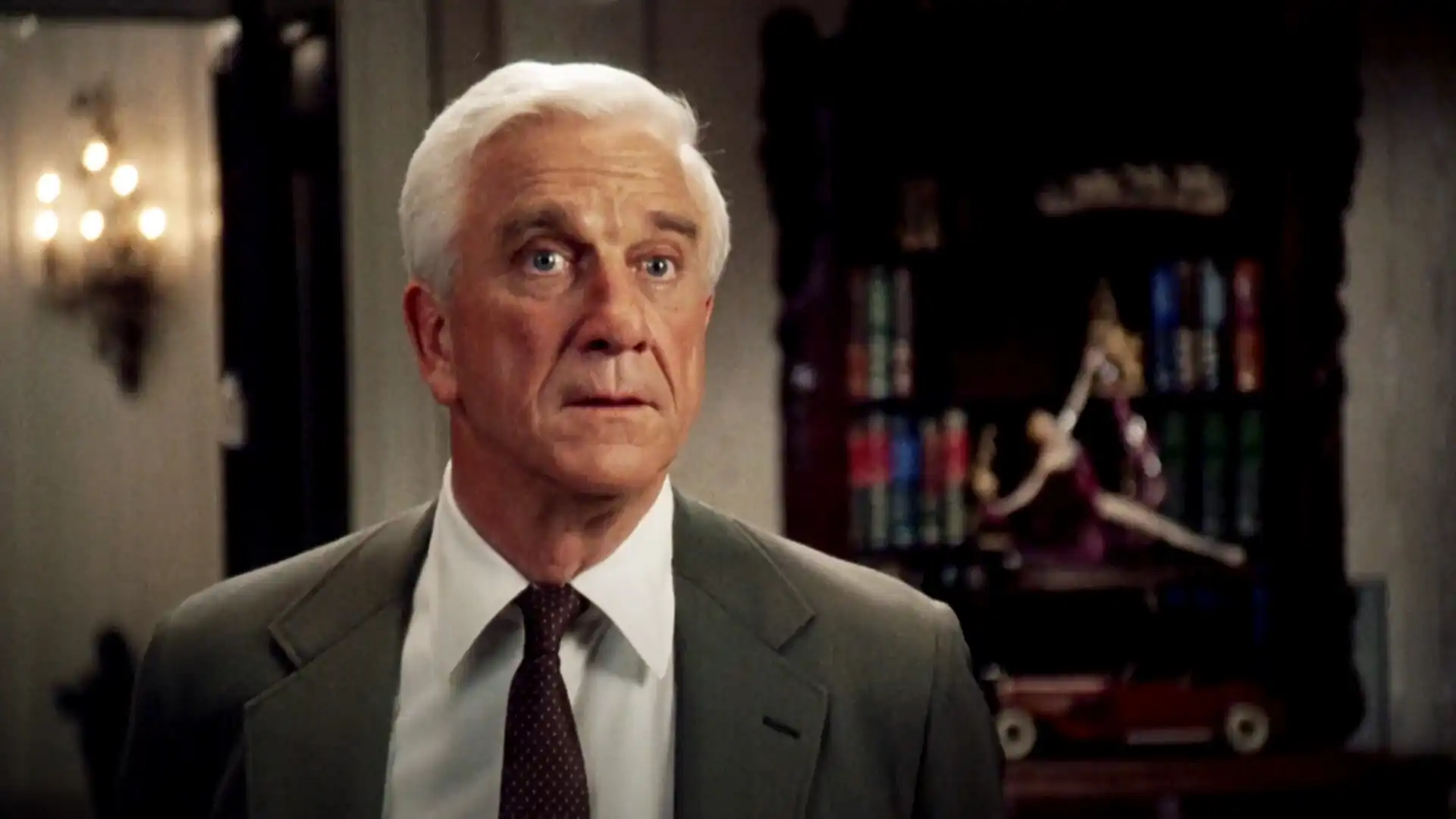The Arthurian legend is so ubiquitous that it appears in some shape in nearly every story found on the planet. The myth of the sword in the stone, the knights of the round table, and the wizard Merlin are such powerful archetypes they define entire conventions of storytelling.
So naturally it’s tempting for every writer out there to put their own spin on the material, and nearly all of them end up spinning the same yarn. Now it’s Frank Miller, returning from cancellation induced exile, who has decided to take a stab at the material by including it in his Forgiveness Tour of 2020. So the man who wrote Batman into a xenophic murderer and whose idea of a strong female character nearly always included sexual abuse now delivers a young adult re-telling of the Excalibur legend by recasting Nimue, the Lady of the Lake, as the hero destined to wield the sword.

Set in what feels like an alternate universe, CURSED begins as Nimue and her best friend find their home under attack from the Red Paladins, a group of vicious zealots out to purge the lands from all magical creatures. Forced into exile, Nimue is charged with taking the ancient sword Excalibur to Merlin, once the most powerful mage in the world, if she hopes to save her kind. But the sword of power, like a certain ring before it, has a way of corrupting the hearts and minds of men, and war is looming on the horizon.
On the surface level and written out this way, CURSED sounds like an instant winner. Freely mixing influences from both Arthurian legend with LORD OF THE RINGS, Hayao Miyazaki, and even elements of PRINCESS BRIDE, there’s a wealth of things to love here. Using fairy tale elements to discuss very real monstrosities like ethnic cleansing and oppression are not knew things, but they’re effective ways for artists to be iconoclasts with their messages.
But the result is a creaking mess of a show without purpose. An attempt at manufacturing spectacle without a vision to decide just what that spectacle should be.
Based on the multimedia project written and drawn by Miller and Thomas Wheeler, the Netflix series was rushed into production late last year, and it shows. The result is a hurried, often cheap looking, tonal mess that drags its heels for the entire unwanted ten hour running time. At times it feels like a kindred spirit to the 90s low budget TV fantasies like XENA and HERCULES, but without the sincerity and goofiness that made them beloved cult favorites.
What’s worse is that it doesn’t need to be this way. There are ample methods of turning the Arthurian saga on its head and telling it differently. Nimue as the lead is certainly an interesting change in theory, but the series does absolutely nothing with it. Instead it settles for a victory lap for having a female lead before the first episode is over, as if setting up material for GIF’s is all that it takes these days to satisfy an audience.
The fault is not Katherine Langford’s either. She’s perfectly fine in a part that has no idea what it is or where it’s going. For half the season Nimue acts as the audience surrogate, then as a young adult novel trope (born sexy yesterday is utilized particularly heavily), only for her to emerge as the head of a magical rebellion with little awareness of how we got there. Langford is on screen for most of the season and holds her own as best she can. She’s never bad, only restrained by the writing.
This applies to most of the cast as well, but some of the more experienced character actors fare much better. Having lost his magic an indeterminate time prior, Merlin now bides his time working as a medieval Dr. Oz, scamming his way into a cushy lifestyle when he can. Gustaf Skarsgård starts the season as a low-rent Jack Sparrow impersonator, but quickly segues his take on the fabled wizard into something far more interesting. His character is sadly sidelined pretty quickly, as if the writers realized their B-plot is actually way more interesting.
Elsewhere the likes of Ólafur Darri Ólafsson and Sebastian Armesto fare better. Ólafsson, playing the Leper King, is particularly a joy in a heavily made up part that allows for prime scenery chewing. As Uther, the hapless and slimy king of the country, Armesto is suitably dastardly, even if his caricature could be straight out of Wacky Races.
Thank goodness then for Pym, played by the crackling Lily Newmark. Early on relegated to the part of the dopey best friend, she quickly emerges as the MVP of the series with an actually interesting plot and a bright, easily lovable performance. Shalom Brune-Franklin also impresses as a nun working in a local convent, who secrets away fay on the run to safety.

But all goodwill from the able cast is undone by the dreadful pacing, lackluster directing, and shallow writing which plague every episode. The scope is all over the place, leaving scenes that should be grand feeling small, and those that are small as if they were rehearsals. There’s no sense of place, and the rapid editing intercut with animated portions for transitions only draws attention to just how messy it all is.
The show is tonally all over the place, and I can’t tell who the audience actually is supposed to be. The drama and romance is as frilly as any young adult novel, but the themes of conversion therapy, political scheming, and implied topics like rape and torture all scream of an entirely different target audience altogether. There’s a potentially heart-wrenching plot line involving brainwashing and emotional abuse that could speak to the very real horrors that LGBTQ+ people face in reality, but it’s handled so clumsily the villains might as well have a “pray the fay away” banner draped around them.
The violence ranges from the clumsy to oddly graphic, yet the CGI is so hurried it takes away from the effect. One early scene involving a pack of attacking wolves tries to evoke Zack Snyder’s imagery from his adaptation of 300, but comes off as a fan film rather than something with its own identity.
Funny enough, for a series that has an 18-rating in the Nordics and features dismemberment, decapitations, and genocide, it turns coy and squeamish at the mere suggestion of nudity or sexuality. As if we’ve reached the point where shows led by women can be violent, but they cannot be sexual.
Production issues also jump out in set and costume design, which range from the inventive to a lot of “that’s what they went with?” Later episodes look a whole lot better than early ones, and the costumes in particular range from the good (Olwen Fouére as Yeva) to some that look like first screen tests (Daniel Sharman as The Weeping Monk).
I can’t imagine that any of this is the fault of Marianne Agertfoft, the costume designer on the series, as her previous work on shows like POLDARK stands out as intricate and beautiful when given the proper amount of time.

The short development time also causes every aspect of the script to sag as it tries to fit both everything and nothing into the season at the same time. There are reveals at every turn, but anyone who has read a book or watched any fantasy show before will be able to guess them well in advance. Yet even then the anticipation falls flat as character actions mean very little from one episode to the next. One egregious example features nearly 40 minutes of backstory and exposition, moving characters between a single room just in time for the episode to end.
There’s also expectation that these reveals mean something to the audience. Sure they’re repeating names of characters we know from legends and pop-culture, but just having characters reveal themselves as such doesn’t actually mean anything here. Not when the material has been so thoroughly remixed. Instead it creates a bizarre expectation: the moment they’re revealed as their known literary selves our expectations shift into waiting to see how they become what we’ve known them as from other material. So all the work in establishing them as new is wasted time. If the attempt is to rid the series of the patriarchal nature of thousands of years of oral history, maybe don’t lean on it so heavily when you need brand recognition.
Then there are the typical pitfalls of every story dealing with legacy and lineage. At some point the unfortunate implication that all the power and strength you possess comes from either an item or from your familial ties comes into play. Here it lands with a thud that reverberates across every episode afterwards, leaving an uncomfortable elephant standing in the center of the room hoping nobody notices it came in late.

I hate to say that this version of Frank Miller is boring, because the other version of him wasn’t exactly great, but gosh if this isn’t the case. Everything about CURSED rides on his name, evoking his iconic visuals at every turn, but it’s also toothless and played extremely safe. There’s a bunch of ticked boxes relating to current talking points, and you can tell the series tries extra hard to be as inclusive as possible (without actually, you know, casting a minority lead).
All of that is good and if that’s the price to pay for a start where we actually get some diversity in these stories, then all the better. But let’s hope it doesn’t come at the cost of interesting writing and directing, because both of those are absent here. Instead we have a winning idea, propelled by a cast that’s been left adrift, that’s floundering in a sea of mediocrity attached to a name that doesn’t dare do anything in fear of it leading to another exile.
Which in itself is funny, considering the title of the series. Miller looms over the entire production, an iconic name that carries with it weight and even power in the industry. But it also brings with it a ton of baggage and decades of muck that doesn’t wash off easily. So as with Excalibur, everyone parades his name around as a symbol of all the potential it could have, not one of them considering that perhaps there was a reason it was lost in the first place.
In the end it really doesn’t matter as the blade is dull and it’s once sharp edges have been filed down. All that’s left is the handle, waiting for someone to forge something new out of it.
Shame that this isn’t it.














Discussion